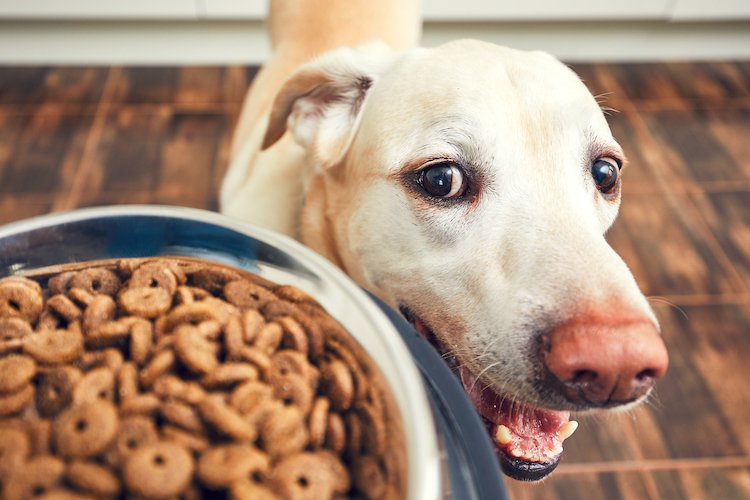
A dog’s coat can tell us many things beyond breed and color. A healthy coat is an indication of a healthy dog and an outward sign of the care and love you give your four-footed friend. Keeping your dog’s coat healthy can take some work, however, and part of that work is ensuring that your dog has a healthy diet. So what is the best dog diet for a healthy coat, and how can you help your dog get the dietary nutrition that it needs in order to maintain a shiny, healthy coat?
Let’s start by taking a look at dog food, in general. There are hundreds if not thousands of options for dog food out there, but good dog food will have the following general characteristics:
General Characteristics of Good Dog Food
- A balanced mix of meat, poultry, fish, and vegetables
- Around 65% protein by volume
- Vitamins and minerals appropriate to your dog’s age and health needs.
- Minimal fill, IE nutritionally poor food added just for bulk
For purposes of maintaining a healthy coat, the protein content and vitamins and minerals are an important part. So what kind of nutrition does your dog’s coat need, and why? Let’s take a look component by component at what keeps your dog healthy:
Kind of Nutritions That Your Dog’s Coat Need
- Essential fatty acids are the most vital component of a good diet when it comes to coat health. Omega 3 fatty acids and B vitamins in particular are dietary substances your dogs’ coat needs in quantity and regularly. A diet lacking these nutrients can lead to dry skin, dandruff, a dry brittle coat, and even skin lesions in younger dogs.
- Protein provides the building blocks of many aspects of canine health, including coat health. Without enough protein, your dog’s well-being will suffer, including developing a brittle, patchy coat.
- Vitamin E does a number of things to support a healthy coat, including protecting the skin cells from oxidant damage or sun damage.
- Vitamin B supports a number of immune systems and recovery functions, including helping your dog heal skin issues.
- Biotin functions in dogs much as it does in humans, helping the body to absorb nutrients and make the best use of fats and proteins. Biotin can be a useful supplement for dogs recovering from a coat issue, including patchy, dry, or brittle coats.
- Riboflavin and Zinc work together to support many bodily processes in dogs, including the development of a healthy coat. They do so by helping the body make better use of fats and proteins, supporting the immune system, and developing skin health.
So now that we know what kind of nutrition our dog’s coat needs, how do we go about supplying the best dog diet for a healthy coat? While you should discuss your dog’s individual needs with your vet before making any dietary decision, most high-quality dog foods generally offer everything your pet needs to thrive–including keeping their coat healthy. Lower-end or bargain-value pet foods may not supply the right nutrition, and if used regularly may lead to a number of health problems including a poor coat. If your dog has an acute issue or needs a bit more nutritional help, canine supplements are sold in many pet stores. You can also try adding a bit of coconut oil to your dog’s food–it’s a terrific source of Omega 3 and Omega 6 among other antioxidants.
Of course, the healthiest dog won’t look its best if its coat isn’t clean. Bathing and grooming your dog regularly are a big part of keeping them well and happy, and at K9000 we strive to make that as easy as possible on you and your pooch. Our DIY dog washing machines take the stress and strain out of giving the dog a bath by automating the process in a way that makes it easy for you and your pet. Give us a try today – you’ll be happy that you did!





